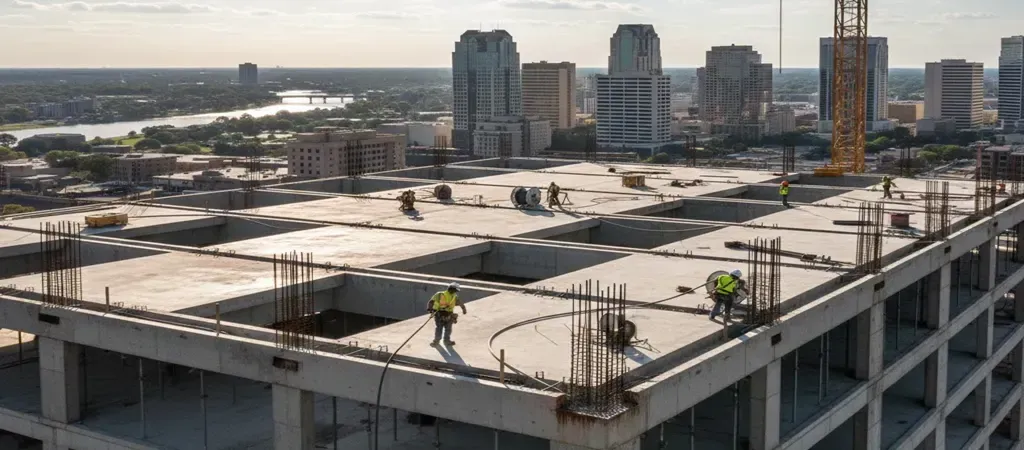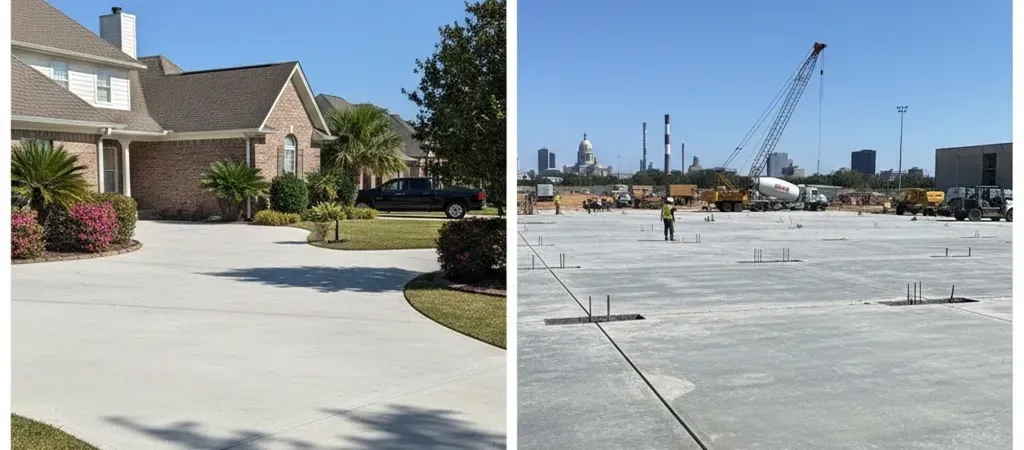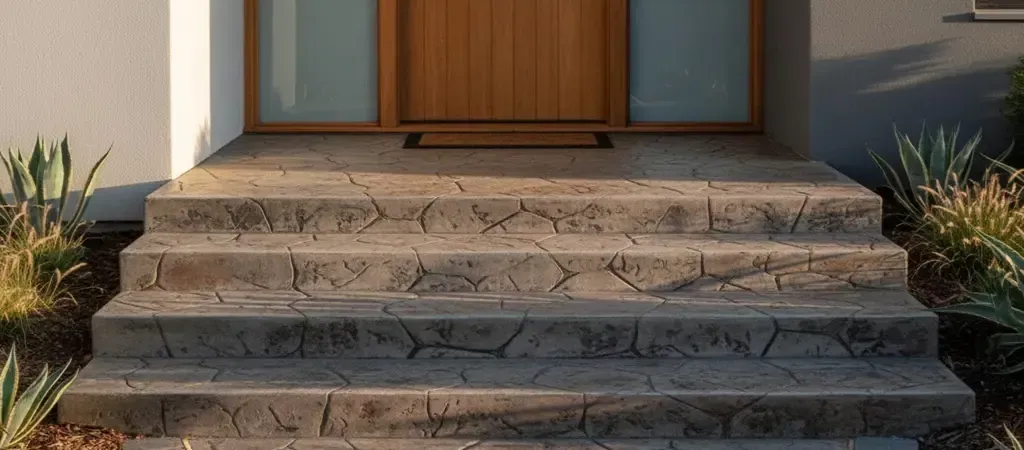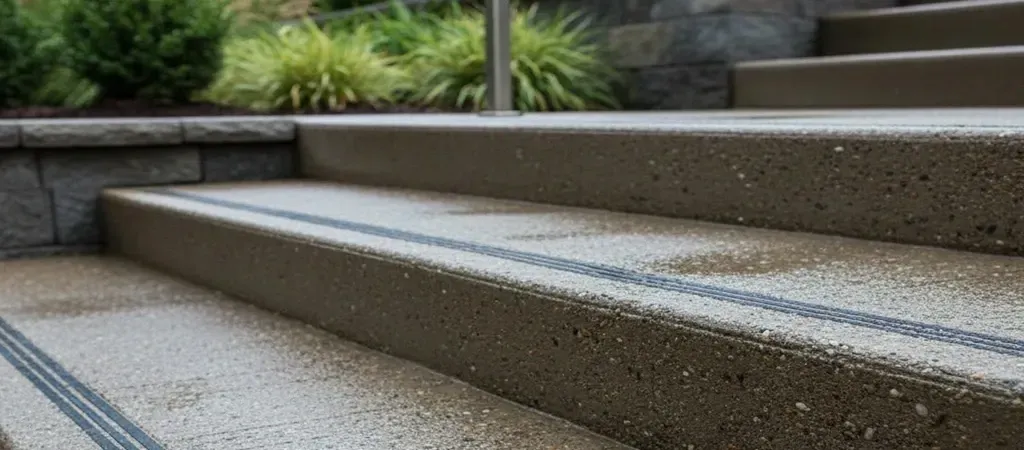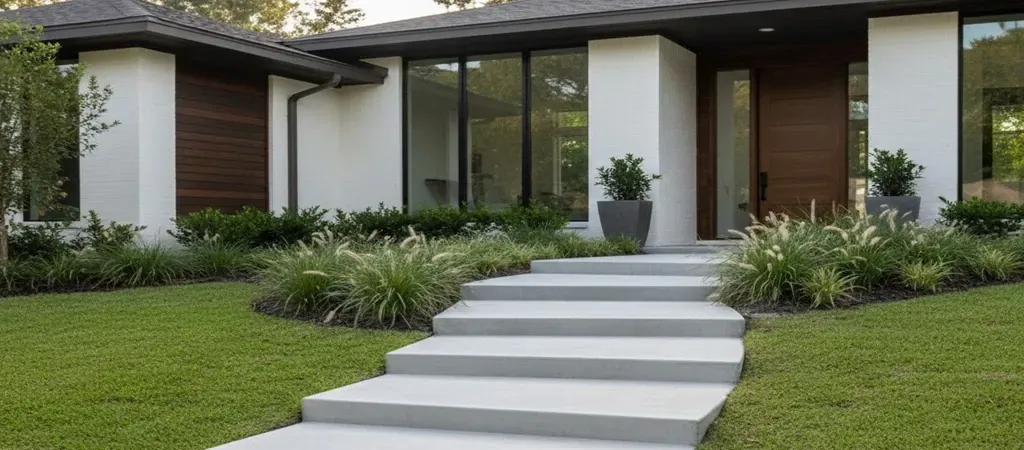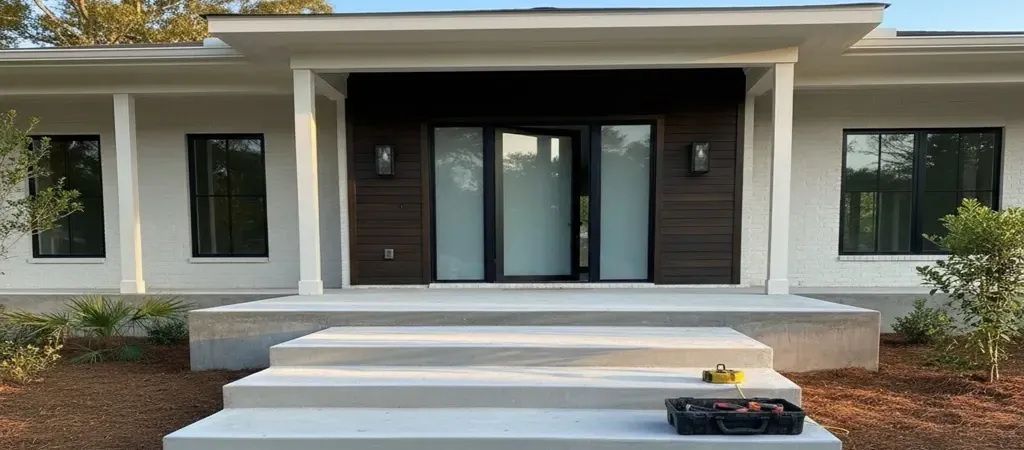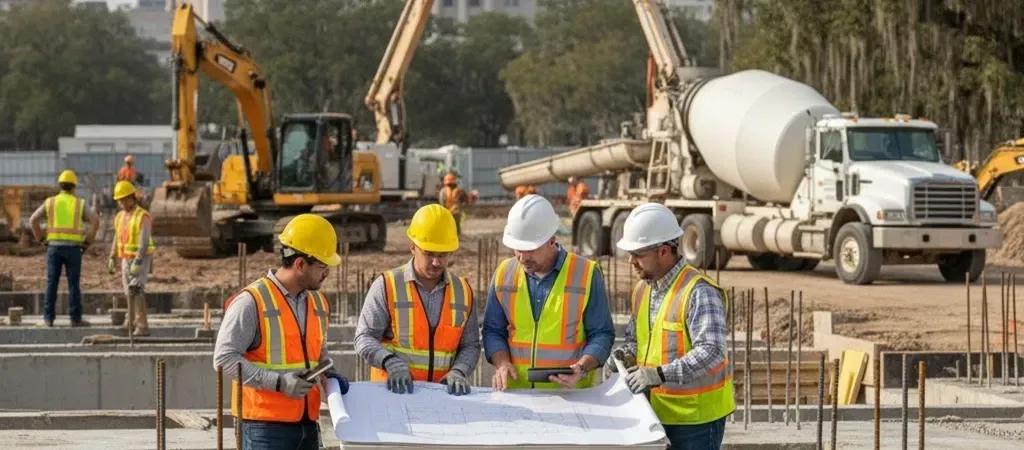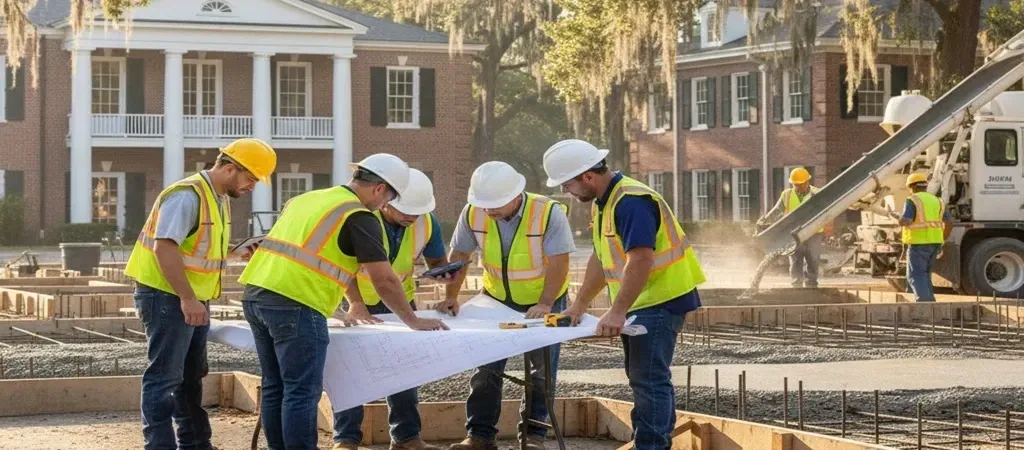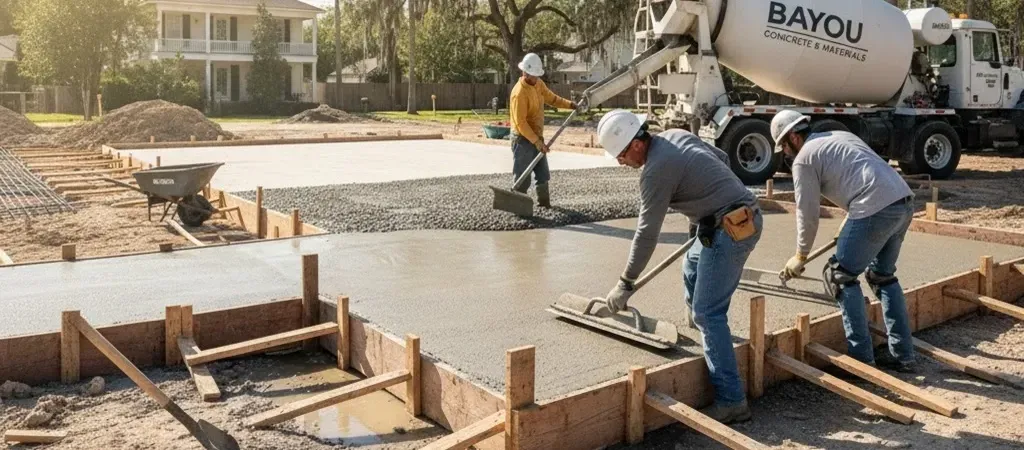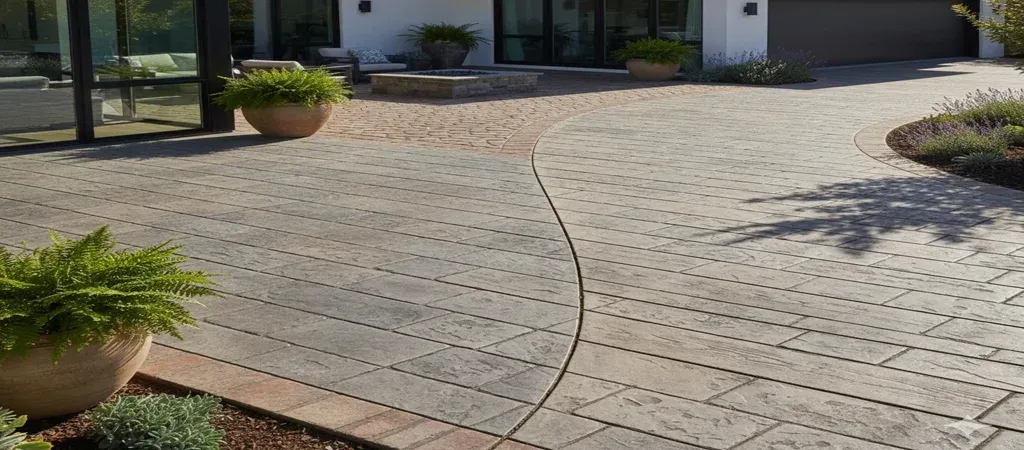Sustainable Building Materials Recommended by Concrete Contractors in Baton Rouge
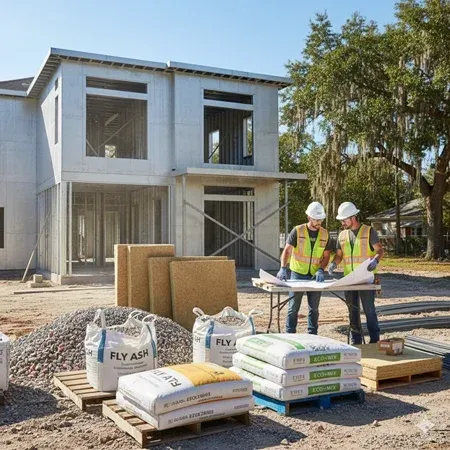
In today’s concrete industry, sustainability is more important than before. The term sustainability is no longer a buzzword—it’s a necessity that should be integrated in residential spaces, businesses, and the Baton Rouge community. One of the few steps that concrete contractors in Baton Rouge have taken is the use of sustainable materials in various types of concrete projects. Using these materials not only helps them become environmentally responsible but also ensures effectiveness while remaining cost-efficient.
While sticking on what’s typically effective is not actually bad, innovation and trying new solutions are often more beneficial than remaining stagnant. Hence, if you are interested in incorporating sustainable materials in your concrete projects, here are some that concrete contractors in Baton Rouge recommend. Note that there are many sustainable materials you can include but we only focused on materials that are practical, effective, and beneficial for end users in concrete construction. So, make sure to check these all out.
Fly Ash
Although it is just a byproduct of coal-fired power plants, fly ash is a highly effective material as it not only reduces gas emissions associated with cement production but it also improves the strength and durability of concrete. That is why concrete contractors in Baton Rouge often replace some portions of Portland cement in mixes. Here are some benefits that you can get by incorporating portions of fly ash in your concrete mix:
- Increases the life span of concrete structures by improving its resistance to cracking and chemical damage.
- Reduce maintenance costs due to added durability.
- A smoother finish is crucial for driveways, patios, and other concrete surfaces.
If adding fly ash in concrete mixes can result in better concrete performance, is it advantageous to add more portions of it, or is it okay to totally replace the Portland itself with fly ash? The answer is no. Portland cement is still necessary as fly ash cannot provide its characteristics. There are actually a lot of things to consider before adding fly ash to your concrete mix, and that’s another story to tell. It is best to consult your trusted concrete contractors in Baton Rouge to ensure you add fly ash correctly.
Slag Cement (GGBFS)
Slag cement, another supplementary cementitious material like fly ash, is a sustainable option for concrete projects. The difference between slag cement and fly ash is their source material and their contribution to concrete’s performance. Slag cement is made from ground granulated blast furnace slag (GGBFS) or a byproduct of iron and steel manufacturing. The difference between the performance of slag cement and fly ash is that slag cement is more hydraulic, activates faster, and is often used in environments requiring higher sulfate and chloride resistance.
Geopolymer Concrete
This is an alternative solution if you prefer replacing Portland cement at all. Although a byproduct like fly ash or slag cannot replace it alone, when activated by alkaline solutions, you can create a durable, low-carbon alternative to traditional concrete. Concrete contractors in Baton Rouge find it an outstanding sustainable solution which is why this material is gaining some traction. Here are some benefits if you opt for geopolymer concrete:
- Resistant to heat, chemicals, and weathering.
- Significantly reduces carbon dioxide emissions during production which supports environmental goals.
- It offers long-term durability, reducing repair and replacement costs.
Recycled Concrete Aggregates (RCA)
Another common sustainable practice especially in less-demanding and small projects is the use of recycled concrete aggregates. Adding some portion of this sustainable material can be cost-effective as it reduces the need for virgin aggregates. It also provides excellent performance for foundations, driveways, and sidewalks while promoting responsible resource use.
But like what was mentioned previously, professional opinion is important in choosing recycled concrete aggregates and how much quantity is needed to add for maximum performance.
Carbon Cure Technology
The invention of Carbon Cure technology is another breakthrough in innovative sustainable materials in concrete construction as it can permanently sequester carbon dioxide while maintaining the strength and performance of the material.
Aside from its ability to reduce the environmental footprint, it also supports green building certifications, which can increase the value of your property.
Admixtures for Water Reduction and Strength Optimization
Concrete mixes need hydration which is why it is important to add adequate water for it to be manageable, harden, and gain strength. However, if there’s a way to minimize the water without compromising its importance, the concrete can become more resistant to the freeze-thaw cycle and shrinkage which causes cracking. That is why admixtures for water reduction have been invented.
But still, even with admixtures, water is needed in concrete mixes. It is best to consult expert concrete contractors in Baton Rouge to learn more about how to use admixtures for water reduction properly to avoid failure.
Remember that the stakes are high in using admixtures which is why professional consultation is highly encouraged in this matter.
Key Reminders
Note that although they have many benefits, sustainable solutions are still optional. It is best to discuss the best sustainable option with your hired professionals.
Baton Rouge Concrete Contractors provides a wide range of sustainable materials with extensive explanations of how clients can incorporate these materials and how the material can be beneficial to their end.
Moreover, there are still many sustainable materials that we didn’t include here such as bamboo reinforcement, pervious concrete, and more. If you are interested in incorporating sustainable solutions in your next project and want to delve down more, or if you are looking for expert advice in any concrete-related matters, feel free to reach out to us.
